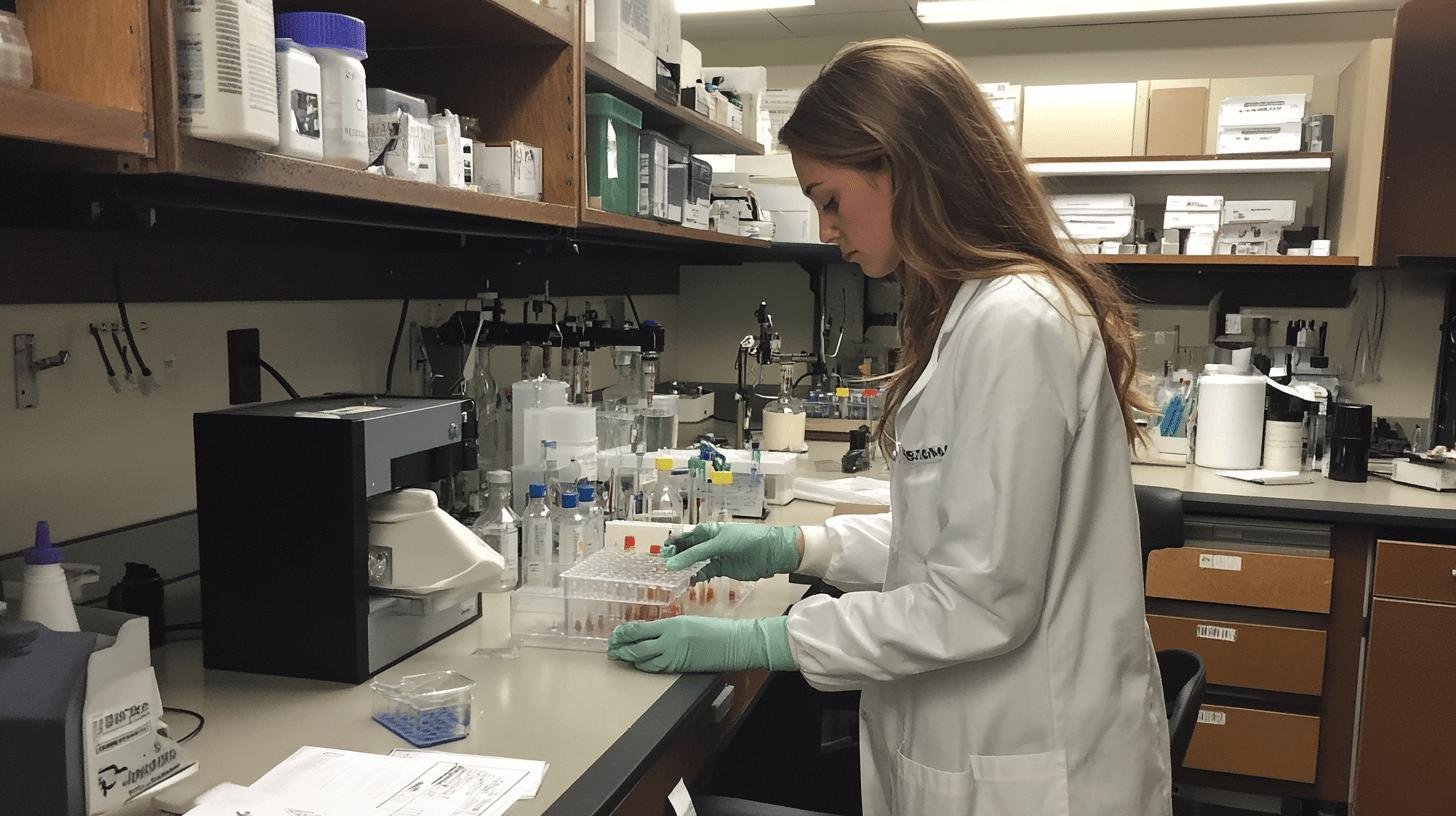TL;DR:
- Autoimmune diseases (over 100 types) occur when the immune system attacks healthy cells; examples include rheumatoid arthritis and Crohn’s disease.
- Common symptoms: fatigue, joint pain, skin rashes, and muscle aches.
- Currently, there is no cure for autoimmune diseases; they require ongoing management through medications and lifestyle changes.
- Common diseases: Type 1 diabetes, psoriasis, multiple sclerosis, among others.
- Management strategies include immunosuppressants, biologics, a balanced diet, regular exercise, and stress management.
- Direct Primary Care (DPC) offers personalized, affordable healthcare tailored to individual needs, making it beneficial for managing chronic conditions like autoimmune diseases.
Are Autoimmune Diseases Curable? Have you ever wondered if autoimmune diseases can genuinely be cured? These mysterious conditions affect millions, where the body’s defence system goes rogue and attacks healthy cells. With over 100 types, including rheumatoid arthritis and Crohn’s disease, they surely make life tough. Symptoms like fatigue and muscle aches are daily battles. But here’s the scoop: while most autoimmune diseases stick around, you can totally manage them with the right care. So, is there hope for a cure? Let’s dive into the possibilities and explore some exciting paths together.
Understanding Autoimmune Diseases and Their Curability
Autoimmune diseases can be confusing. They’re conditions where the immune system, meant to protect us, attacks healthy cells. There are over 100 types, including rheumatoid arthritis, Crohn’s disease, and thyroid issues. These are chronic, so they last a long time. While they don’t usually affect life expectancy, they need ongoing management. Medications can help control symptoms but aren’t a cure.
Some common symptoms include:
- Fatigue
- Dizziness
- Low-grade fever
- Muscle aches
- Swelling
- Joint pain
- Skin rashes
So, are autoimmune diseases curable? Generally, no. Their roots in the immune system make finding cures challenging. It’s like trying to fix a car while it’s moving. Instead, we focus on managing them. This involves medications, lifestyle changes, and regular healthcare visits. The goal is to minimize symptoms and maximize comfort.
Exploring the Possibility of Curing Autoimmune Diseases

Is there a cure for any autoimmune diseases? Currently, the answer is no. They’re a significant challenge in medicine today. But there’s hope. Scientists are dedicated to exploring innovative research. These include gene therapy, which alters DNA to fix the immune system, and personalized medicine, tailored to individual needs. These strategies aim not only to manage symptoms but to possibly reverse diseases.
Exciting breakthroughs are happening, too. Therapies like CAR-T, already effective in cancer treatment, may benefit autoimmune diseases by potentially forcing them into remission. Researchers are also looking into gut microbiota—our gut bacteria—and its role in autoimmunity. Scientists hope to ease or even reverse symptoms by understanding and adjusting these microbes. These advances could lead to more effective treatments.
Common and Rare Autoimmune Diseases
Certain names come to mind when thinking of autoimmune diseases. Common ones include Type 1 diabetes, rheumatoid arthritis, psoriasis, multiple sclerosis, systemic lupus erythematosus, and inflammatory bowel disease. These are well-known due to their prevalence and impact.
Common autoimmune diseases include:
- Type 1 diabetes
- Rheumatoid arthritis
- Psoriasis
- Multiple sclerosis
- Systemic lupus erythematosus
- Inflammatory bowel disease
On the other end, there are rare autoimmune diseases, which, although less known, can be severe. For instance, giant cell myocarditis is rare but highly serious, affecting the heart. These diseases remind us of the wide range of autoimmune conditions, emphasizing the need for awareness and research.
Treatment and Management Strategies for Autoimmune Diseases

Medication is often the first defence against autoimmune diseases. These drugs help control symptoms but can have side effects. Common medications include immunosuppressants, which reduce the immune system’s activity, and anti-inflammatory drugs to ease the body’s response. Biologics target specific immune system parts, offering precision treatment.
Lifestyle changes can also make a big difference:
- Balanced diet: Focus on fruits, veggies, and whole grains.
- Regular exercise: Helps reduce fatigue and boost mood.
- Stress management: Yoga or meditation can help manage stress.
- Quality sleep: Ensures recovery and healing.
- Avoid smoking: Smoking can worsen symptoms.
Managing these diseases is a long-term process, much like training for a marathon. The goal is to control symptoms and improve life quality. Regular healthcare check-ins are crucial, allowing treatment adjustments as needed. A blend of medication and lifestyle changes can help people with autoimmune diseases manage their condition effectively. Consistency is key to achieving the best outcomes.
The Role of Direct Primary Care in Autoimmune Disease Management
Finding good healthcare can feel like searching for a secret menu at a restaurant. Direct primary care (DPC) simplifies this process. It offers personalized, accessible healthcare, crucial for chronic conditions like autoimmune diseases. DPC treats you as a priority, not just a number. It’s also more affordable than traditional insurance-based systems, providing direct care without insurance obstacles.
DPC creates individualized treatment plans that work. In this setup, doctors have time to understand you and your condition fully. They can develop unique treatment plans in collaboration with you, which is essential for managing autoimmune diseases. Unlike a one-size-fits-all approach, these plans are tailored as uniquely as your coffee order. Operating outside insurance constraints allows for creativity and flexibility in treatment. For those seeking personalized healthcare, DPC might be the ideal choice.
Final Words
Autoimmune diseases are tricky beasts that pop up when our immune system mistakenly attacks healthy cells. Examples include rheumatoid arthritis and Crohn’s disease. Our best shot for now is managing symptoms with medications and lifestyle changes.
Science is investigating this problem, trying to determine whether autoimmune diseases are curable. While a cure is elusive, recent breakthroughs suggest promising leads.
Direct Primary Care offers a personalized touch, helping shape individualized plans that improve life quality.
With ongoing research and dedicated healthcare models, managing autoimmune diseases more effectively is within reach. Keep the faith—better days are ahead!
FAQ
Can autoimmune disease kill you?
Autoimmune disease can be serious, but most don’t directly cause death. They often affect the quality of life due to chronic symptoms. Managing symptoms with the right treatment usually helps maintain a normal lifespan.
What triggers autoimmune diseases?
Triggers for autoimmune diseases can include genetics, environmental factors, infections, and stress. Each person’s experiences are unique, making it tricky to pinpoint exact triggers for everyone.
Is there a miracle cure for autoimmune disease?
There currently isn’t a miracle cure for autoimmune diseases. They’re typically managed with medicine and lifestyle changes. Science is always evolving, so future breakthroughs could bring better treatments.
Can you cure autoimmune disease in 30 days?
Autoimmune diseases usually aren’t curable, especially within 30 days. They require lifestyle management and ongoing medical care to maintain quality of life and symptom relief.
What are the common symptoms of autoimmune diseases?
Common symptoms include:
- Fatigue
- Dizziness
- Low-grade fever
- Muscle aches
- Swelling
- Joint pain
- Skin rashes
How can one prevent autoimmune disease?
Preventing autoimmune disease isn’t fully understood yet. However, leading a healthy lifestyle—a balanced diet, regular exercise, good sleep, and stress management—can help reduce risks.
Can people with autoimmune disease live a normal life?
Yes, many people with autoimmune diseases live normal lives with the right treatment plan, symptom management, and lifestyle adaptations.
Can autoimmune disorders go away?
Autoimmune disorders usually don’t disappear completely. However, symptoms can go into remission or become manageable with treatment and lifestyle adjustments.
What happens to the body with an autoimmune illness?
The immune system mistakenly attacks healthy cells, causing inflammation and symptoms in different body parts. This often leads to chronic pain, fatigue, and other related symptoms.
Can you reverse an autoimmune disease?
Reversing an autoimmune disease isn’t typically possible, but managing symptoms and slowing progression with treatment helps improve quality of life.
What are the 80 different autoimmune disorders?
There are over 100 autoimmune disorders, but some common ones are rheumatoid arthritis, lupus, multiple sclerosis, Crohn’s disease, and psoriasis. Each has distinct symptoms and treatment protocols.

